STATEHOUSE REPORT | ISSUE 22.38 | Sept. 22, 2023
BIG STORY: S.C.’s maternal health in rapid decline, experts say
MORE NEWS: Former S.C. Rep. David Mack passes away
LOWCOUNTRY, Ariail: All we have to do is follow science
COMMENTARY, Brack: Stashing phones during school has benefits
SPOTLIGHT: Riley Institute at Furman University
MYSTERY PHOTO: Lots of columns
FEEDBACK: Send us your thoughts
S.C.’s maternal health in rapid decline, experts say
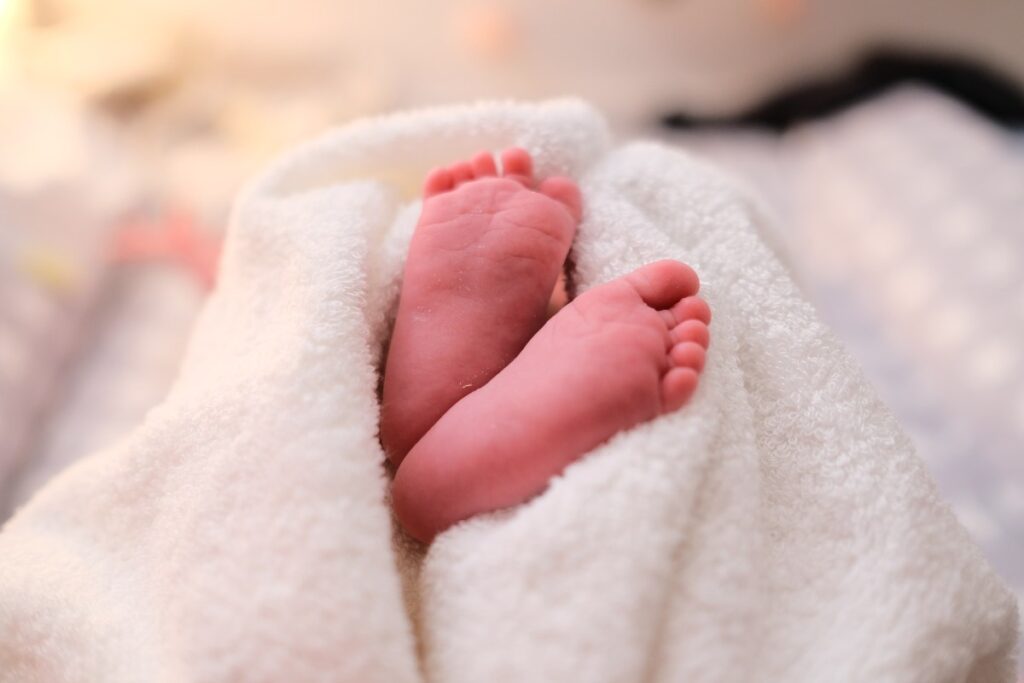
By Skyler Baldwin | South Carolina’s inadequate prenatal care, high rates of preterm births and rising infant mortality in many communities across the state are getting worse, a panel of experts said Thursday evening. Even worse: Black and brown communities suffer the most, they said.
The S.C. League of Women Voters hosted a virtual panel from the Alliance for a Healthier South Carolina (AHSC), the state Department of Health and Environmental Control (DHEC), Charleston Birth Place (CBP) and the Medical University of South Carolina (MUSC) Thursday night to share data and experiences related to maternal health. Nearly 400 virtual guests attended.
“In recent years, and maybe a lot of this can be attributed to Covid, we’ve seen infant mortality rates start to rise,” Monty Robertson, executive director of AHSC, said during the webinar. “Black moms and babies are not doing as well. This is really an urgent issue, and we have to figure out why we are seeing these disparities that exist today.”
Scary data
The conversation follows the 2022 March of Dimes Report Card, released late last year, which gave the U.S. a D+ in maternal health. South Carolina received an F. According to the report, South Carolina’s preterm birth rate has steadily climbed since 2014, increasing from 10.8% to 12.1% statewide in 2021. The nationwide rate in 2021 was 10.5%.
South Carolina also has a rate of 6.5 infant deaths per 1,000 live births, above the national average of 5.4, according to the report. And that number increased 12.3% by 2021, said Kristen Shealy, deputy director of DHEC’s Bureau of Maternal and Child Health. Furthermore, it’s twice as high for Black women compared to White, she said. Similarly, rural counties made up 14 of the top 15 counties for highest IMR in 2021.
And there are other areas in which women face discrimination too, said Dr. Eugene Chang, a maternal and fetal medicine specialist at MUSC.
“Discrimination is often thought of as just a racial issue, but being part of the maternal mortality review committee has really opened my eyes,” he said during Thursday’s webinar. “There’s a lot of different discriminations to include — substance abuse and special needs are two of the most prevalent.”
One of the biggest factors in maternal and infant care, however, is prenatal care, the experts agreed. According to the March of Dimes report, 18% of pregnant South Carolina women in 2021 did not receive adequate prenatal care, which is defined by the percentage of women who receive less than 50% the appropriate number of visits for the infant’s gestational age or who did not receive care until the fifth month of pregnancy or later.
Preventable deaths
According to DHEC, more than four of every five pregnancy-related deaths in 2019 were preventable. Prenatal care can and should cover a wide range of complications before they arise, Shealy said.
“Pre-pregnancy and prenatal care is important to see health care providers and manage health concerns prior to pregnancy,” she said in the webinar. “Mental health can be addressed early … particularly substance abuse.”
Robertson said prenatal care often gets overlooked because the issues are not clinical.
“We’re going to have to go beyond just the clinical care we provide to women,” he said. “Clinical care only accounts for about 20% of our health. Other issues like diet, exercise, smoking, all of these health behaviors are about 30% of health outcomes. The rest — most of your health is really attributed to those social and economic factors. … Those are the issues really driving the poor outcomes we see today.”
Doulas and midwives can cover some of those issues, said Lesly Rathbun, a nurse practitioner and midwife and director of CBP.
“Many health care providers are unsure what midwives do, where their training and qualifications are, or that their outcomes are so stellar compared to traditional health care in the U.S.,” she said in Thursday’s webinar. “Doulas do not provide health care — they are labor support, emotional and physical. Studies show they are very beneficial, and we’ve seen a big push for doula care in South Carolina.”
Rathbun said low pay, low opportunities and legislative restrictions make it difficult for doulas and midwives to practice in the Palmetto State.
Chang said there are several opportunities in several areas to address concerns and inequities in maternal health, but none are “low-hanging fruit,” he said.
Skyler Baldwin is a reporter for the Charleston City Paper. Have a comment? Send to: feedback@statehousereport.com.
Former S.C. Rep. David Mack passes away
Staff reports | North Charleston radio personality and former S.C. Rep. David Mack III passed away Sept. 20 at age 69. Friends and family say Mack had recently gone through several cancer treatments.
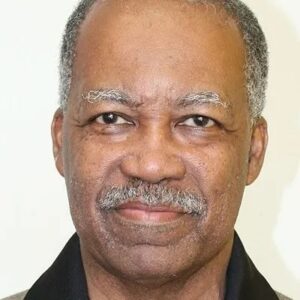
“For more than two decades, David Mack served his state and his constituents with dignity, grace and distinction,” said Charleston Mayor John Tecklenburg. “Our prayers are with his family as they mourn his passing.”
From 1997 to 2020, Mack, a Democrat, represented the 109th House district, which included portions of Charleston and Dorchester counties. In the Statehouse, Mack served on various House committees, including Judiciary; Labor, Commerce and Industry; and Medical, Military and Municipal Affairs.
He was a staunch supporter of efforts to advance civil rights and equity, and to improve health outcomes among African Americans. He served on the board of the S.C. Coalition for Black Voter Participation, the Progressive Network, Hollings Cancer Center and other organizations. Mack was also a member of the North Charleston branch of the NAACP and was a talk show radio host.
S.C. Rep. Deon Tedder, D-North Charleston, who currently represents District 109 and recently won a Tuesday special Senate District 42 Democratic primary, posted on X and Facebook, that he was heartbroken to learn of Mack’s death.
“Whenever David spoke, the room fell silent, and every ear was attuned to his words,” Tedder posted on Facebook. “He was a beacon of integrity and had a deep love for all people. He was not only a mentor and friend but, above all, a man of unwavering faith.”
Funeral arrangements reportedly are being handled by Fielding Home for Funerals.
In other recent news:
![]() Tedder gets Dem nod but Gilliard may challenge result. The S.C. State Election Commission (SEC) on Thursday afternoon certified S.C. Rep. Deon Tedder, D-North Charleston, as the winner of a tight Democratic state Senate primary runoff. A recount showed he got just 11 more votes than Rep. Wendell Gilliard, D-Charleston. Gilliard has until Monday to decide whether to challenge the vote count.
Tedder gets Dem nod but Gilliard may challenge result. The S.C. State Election Commission (SEC) on Thursday afternoon certified S.C. Rep. Deon Tedder, D-North Charleston, as the winner of a tight Democratic state Senate primary runoff. A recount showed he got just 11 more votes than Rep. Wendell Gilliard, D-Charleston. Gilliard has until Monday to decide whether to challenge the vote count.
2023 Profile in Courage highlights five S.C. senators. The John F. Kennedy Library Foundation will present the 2023 Profile in Courage Award to five South Carolina senators known for forming a bipartisan coalition to defeat the state’s abortion ban: Katrina Shealy, Margie Bright Matthews, Mia McLeod, Sandy Senn and Penry Gustafson.
S.C. secures drugs needed to continue lethal injections. South Carolina has secured the drug needed to perform lethal injections and those executions will go forward, Gov. Henry McMaster announced Sept. 19. The procedure has been paused for more than a decade.
Murdaugh pleads guilty for swindling millions. Convicted murderer Alex Murdaugh pleaded guilty in federal court to 22 financial crimes for stealing $9 million or more from former personal injury clients, colleagues and friends.
Wreckage of missing fighter jet found Monday. Authorities on Monday found debris from a missing F-35 military fighter jet in Williamsburg County. A day before, a pilot on a training mission ejected safely over North Charleston and the military lost track of his jet. Joint Base Charleston said the cause of the jet’s “mishap” remains under investigation
S.C. hits new employment record in August. South Carolina hit another employment record in August as more workers found jobs even as businesses added fewer positions. New employment data showed 2.4 million people were working in the Palmetto State last month, about 11,300 more than in July.
Lapse in federal flood insurance could impact S.C. housing market. If congress can’t reach a funding deal on the National Flood Insurance Program by Sept. 30, FEMA will be unable to renew or issue new flood insurance policies.
Charleston grand jury indicts Folly Beach DUI suspect. Documents filed Wednesday show a Charleston County grand jury recently returned an indictment on four charges for Jamie Lee Komoroski. Now 26, she is accused of being intoxicated and hitting a golf cart with her car, killing a bride and injuring three others.
All we have to do is follow science
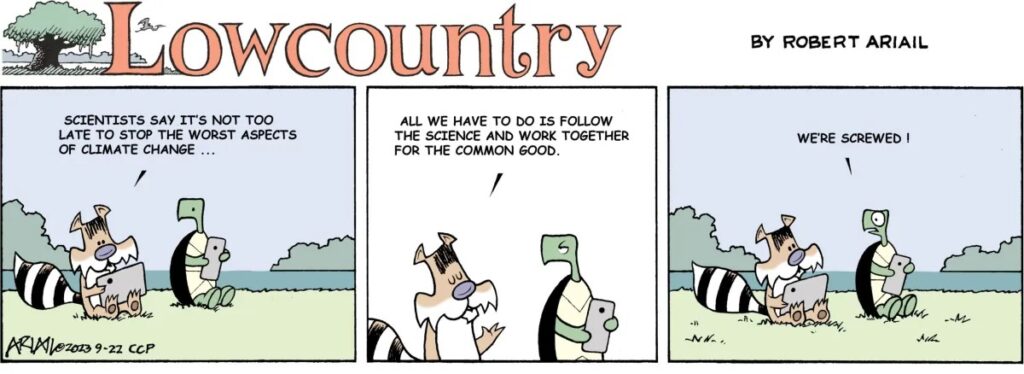
Award-winning cartoonist Robert Ariail generally has a biting or funny comment about the great state of South Carolina in his weekly cartoon. This week, he takes on climate change. Love the cartoon? Hate it? What do you think: feedback@statehousereport.com.
Stashing phones during school has benefits
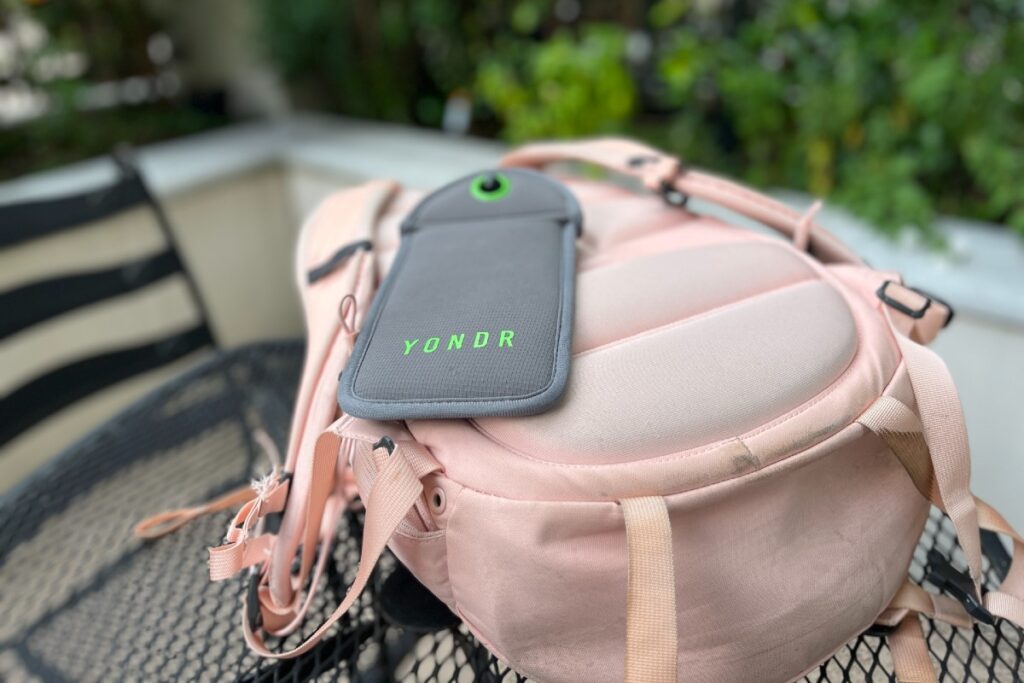
By Andy Brack | Whoo, boy. The high school kids don’t like those new phone pouches at school. It takes them away from the electronic crack of social media.
 In at least three Charleston schools, students must now lock their phones away during instruction time in special magnetized Yondr pouches to keep classrooms phone-free. At lunch if students want to catch up on calls, email or social media, they can unlock the bag and use the phone. Yondr says its pouches are used by 1 million students in 16 countries.
In at least three Charleston schools, students must now lock their phones away during instruction time in special magnetized Yondr pouches to keep classrooms phone-free. At lunch if students want to catch up on calls, email or social media, they can unlock the bag and use the phone. Yondr says its pouches are used by 1 million students in 16 countries.
According to Yondr’s website, “Since it’s a physical pouch system that keeps people from poking at the screen, Yondr doesn’t need to interfere with a phone’s connectivity. Text messages, location services, parental apps, and other vital systems will still be functioning on a phone in a Yondr pouch.”
Teachers and administrators seem to love these new pouches because they greatly reduce electronic distractions. And, they say, that translates in three ways: Students get more instruction time, are better behaved and show improvement in grades.
“Teachers are very happy with the increased levels of engagement,” one principal told reporter Lily Levin at the Charleston City Paper. Another said it was helping teachers win what had been a losing battle in classrooms with distraction caused by electronic devices.
But students, some of whom already have figured out how to game the system by bringing two phones to school, often feel like the Yondr bags are a new kind of phone police that goes overboard. For example, at one school, an Apple Watch recently went off in a classroom, causing a squad of school officials to swoop into the room to search backpacks. In other words, the policy that was supposed to stop classroom distractions created an even bigger one.
Some students complain because they feel left out of the decision about the devices that have become so important – and were used in classrooms in the past. They feel schools are overreacting and don’t trust them – all over devices. And they worried about what would happen if something bad occurred in their private lives or in the classroom and they couldn’t get to their phones to take or make a call.
Some helicopter parents apparently feel the same way, worried by not being able to get in touch with their children. But administrators say parents can contact the school via its regular phone lines. The pouches aren’t a punishment – just a tool to do what is supposed to happen at school. And if necessary in an emergency, the pouches can be broken into if necessary – it’s just not easy.
In fact, Yondr proponents often point out that students in the Dark Ages before the turn of the latest century went to school without cell phones. If something bad happened then, the school would have notified parents – or parents showed up at schools.
“If my kids hear me say I went to school my entire life without a cellphone again, they’re probably gonna throw up,” one high school parent said. “But it’s true,” he added, chuckling.
Yondr pouches are used beyond schools and are found at concert venues, comedy clubs, weddings and even workplaces to create phone-free zones.
On balance, the pluses of these phone-free secure bags seem to outweigh the negatives. In schools, they seem to help focus students on learning, which is the reason they’re spending hours a day in the classroom.
Let’s hope more schools take a proactive approach to reducing the impact of distractions like cell phones so students can focus on what really matters – real learning and critical thinking.
Andy Brack is editor and publisher of Statehouse Report and the Charleston City Paper. Have a comment? Send to: feedback@statehousereport.com.
Riley Institute at Furman University
 The public spiritedness of our underwriters allows us to bring Statehouse Report to you at no cost. This week’s spotlighted underwriter is Furman University’s Riley Institute, which broadens student and community perspectives about issues critical to South Carolina’s progress. It builds and engages present and future leaders, creates and shares data-supported information about the state’s core challenges, and links the leadership body to sustainable solutions.
The public spiritedness of our underwriters allows us to bring Statehouse Report to you at no cost. This week’s spotlighted underwriter is Furman University’s Riley Institute, which broadens student and community perspectives about issues critical to South Carolina’s progress. It builds and engages present and future leaders, creates and shares data-supported information about the state’s core challenges, and links the leadership body to sustainable solutions.
Launched in 1999, the Institute is named for former South Carolina Governor and former United States Secretary of Education Richard W. (Dick) Riley. It is committed to nonpartisanship in all it does and to a rhetoric-free, facts-based approach to change.
- Learn more about the Riley Institute.
- Also learn more about the Riley Institute’s Center for Education Policy and Leadership.
Lots of columns
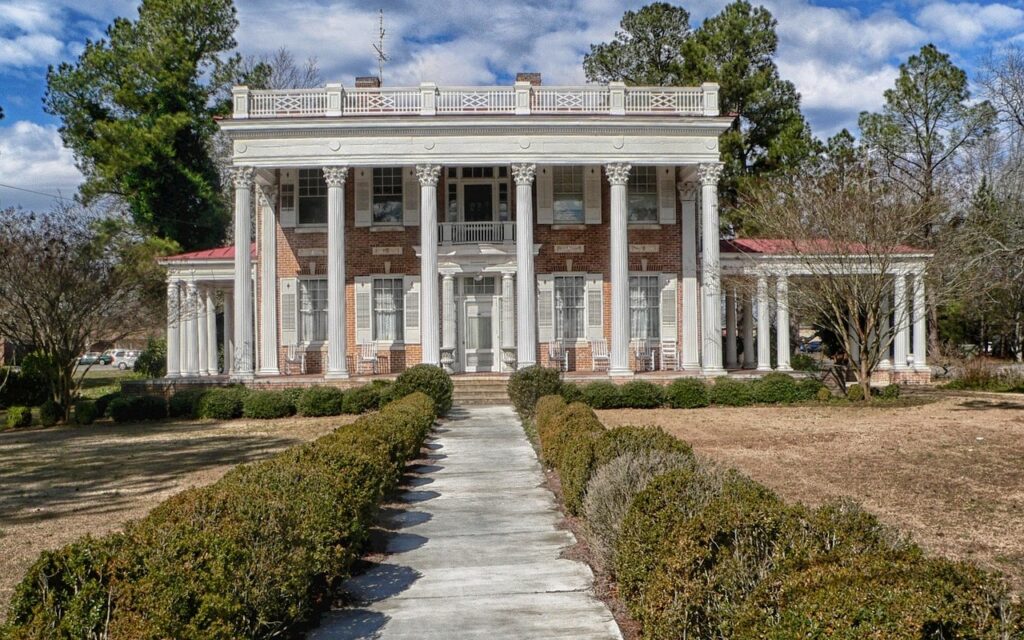
There are a lot of Corinthian columns on this South Carolina. Where is it? Send us your guess of what this photo shows – as well as your name and hometown – to feedback@statehousereport.com.
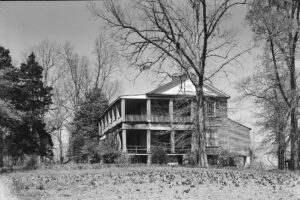 Last week’s mystery photo, which was from the Library of Congress, showed the Woodburn Plantation house in Pendleton. Of note is that the house was built in 1830 as a summer home by Charlestonaian Charles Cotesworth Pinckney, nephew of Founding Father Charles Cotesworth Pinckney of Charleston. Woodburn was named to the National Register of Historic Places in 1970.
Last week’s mystery photo, which was from the Library of Congress, showed the Woodburn Plantation house in Pendleton. Of note is that the house was built in 1830 as a summer home by Charlestonaian Charles Cotesworth Pinckney, nephew of Founding Father Charles Cotesworth Pinckney of Charleston. Woodburn was named to the National Register of Historic Places in 1970.
Congratulations to several people who identified it: George Graf of Palmyra, Va.; Allan Peel of San Antonio, Texas; David Lupo of Mount Pleasant; Jay Altman and Elizabeth Jones of Columbia; Bill Segars and Don Clark, both of Hartsville; and Pat Keadle of Wagener. If you don’t see your name listed and you sent in the correct guess, we apologize. The email address didn’t work for a bit last week and some emails may not have gotten through.
>> Send us a mystery picture. If you have a photo that you believe will stump readers, send it along (but make sure to tell us what it is because it may stump us too!) Send to: feedback@statehousereport.com and mark it as a photo submission. Thanks.
Send us your thoughts
We encourage you to send in your thoughts about policy and politics impacting South Carolina. We’ve gotten some letters in the last few weeks – some positive, others nasty. We print non-defamatory comments, but unless you provide your contact information – name and hometown, plus a phone number used only by us for verification – we can’t publish your thoughts.
- Have a comment? Send your letters or comments to: feedback@statehousereport.com. Make sure to provide your contact details (name, hometown and phone number for verification. Letters are limited to 150 words.
- ORDER NOW: Copies are in Lowcountry-area bookstores now, but if you can’t swing by, you can order a copy online today.
- Now available as an e-book!
ABOUT STATEHOUSE REPORT
Statehouse Report, founded in 2001 as a weekly legislative forecast that informs readers about what is going to happen in South Carolina politics and policy, is provided to you at no charge every Friday.
- Editor and publisher: Andy Brack, 843.670.3996
Donate today
We’re proud to offer Statehouse Report for free. For more than a dozen years, we’ve been the go-to place for insightful independent policy and political news and views in the Palmetto State. And we love it as much as you do.
But now, we can use your help. If you’ve been thinking of contributing to Statehouse Report over the years, now would be a great time to contribute as we deal with the crisis. In advance, thank you.
Buy the book
Now you can get a copy of editor and publisher Andy Brack’s We Can Do Better, South Carolina! ($14.99) as a paperback or as a Kindle book ($7.99). . The book of essays offers incisive commentaries by editor and publisher Andy Brack on the American South, the common good, vexing problems for the Palmetto State and interesting South Carolina leaders.
More
- Mailing address: Send inquiries by mail to: P.O. Box 21942, Charleston, SC 29413
- Subscriptions are free: Click to subscribe.
- We hope you’ll keep receiving the great news and information from Statehouse Report, but if you need to unsubscribe, go to the bottom of the weekly email issue and follow the instructions.
- Read our sister publication: Charleston City Paper (every Friday in print; Every day online)
- © 2023, Statehouse Report, a publication of City Paper Publishing, LLC. All rights reserved.


